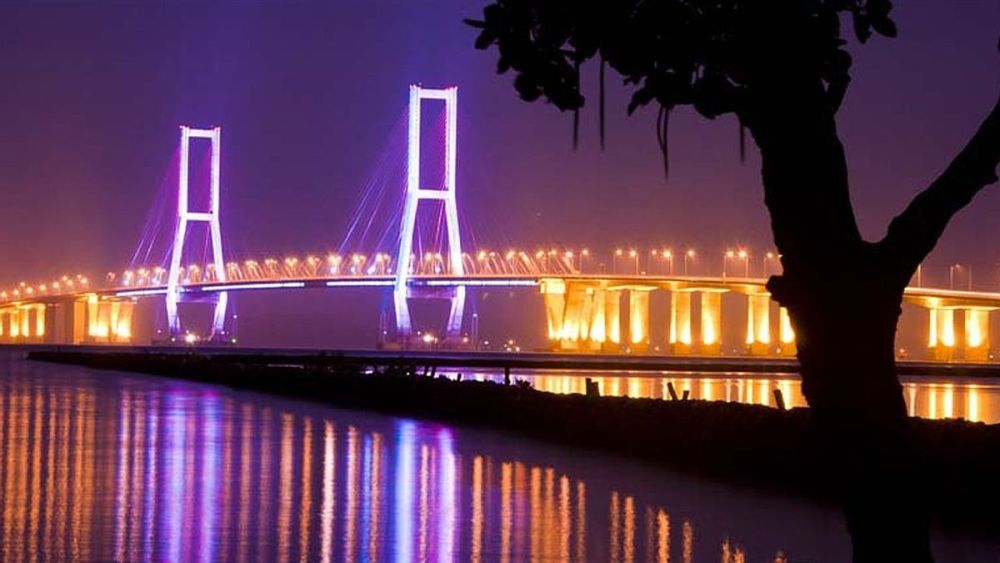

The Suramadu Bridge, also known as the Surabaya-Madura Bridge, is an iconic landmark that connects the bustling city of Surabaya in East Java to the island of Madura, Indonesia. Since its inauguration, the bridge has not only facilitated economic growth but also emerged as a significant tourist attraction due to its impressive architecture and the panoramic views it offers.
The concept of building a bridge to connect Surabaya with Madura dates back to colonial times, but it was not until 2003 that construction began. After six years, in June 2009, the Suramadu Bridge was officially opened to the public. Spanning approximately 5.4 kilometers in length, it is considered to be one of the longest bridges in Southeast Asia. This grand infrastructure project aimed to bolster economic and social integration between Surabaya and the relatively less-developed Madura island.
Initially, the Suramadu Bridge primarily served to improve transportation networks. However, it quickly became a popular site for locals and tourists alike, drawn by the bridge's grandeur and the enhanced accessibility it provided to the attractions of Madura. The bridge itself became a destination, with visitors often stopping to take photographs against the backdrop of its sprawling cable-stayed structure, particularly stunning during the evening when it is illuminated by LED lights.
Visitors to the Suramadu Bridge can enjoy a range of activities. The area surrounding the bridge has been developed to cater to tourists, with parks, food stalls, and lookout points from which to admire the bridge and the surrounding sea. Adventure tourism has also gained popularity, with options for fishing and sailing around the bridge's waters.
Tourism on Madura island has seen a subsequent boost, with easier access to its beaches, bull racing events, and local culinary delights. The bridge has played a significant role in exposing the cultural richness of Madura to a broader audience.
The latest trends in tourism around the Suramadu Bridge involve eco-friendly and community-based initiatives. There is a growing emphasis on sustainability, with tours that focus on local culture and traditions encouraging responsible tourism practices. Furthermore, with the rise of social media, the Suramadu Bridge has become a hotspot for photography enthusiasts, seeking to capture its architectural beauty from various perspectives.
The Suramadu Bridge stands as a testament to Indonesia's commitment to infrastructure and development, while simultaneously blossoming into a beloved symbol of tourism in Surabaya. Its presence has significantly enhanced connectivity and cultural exchange between Surabaya and Madura, marking a bright future for tourism in the region.